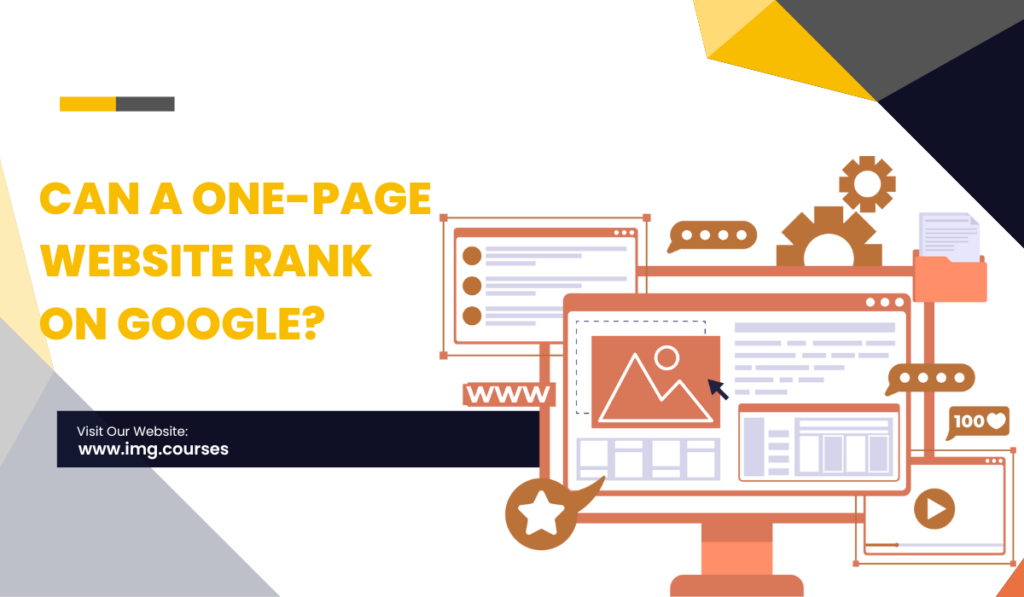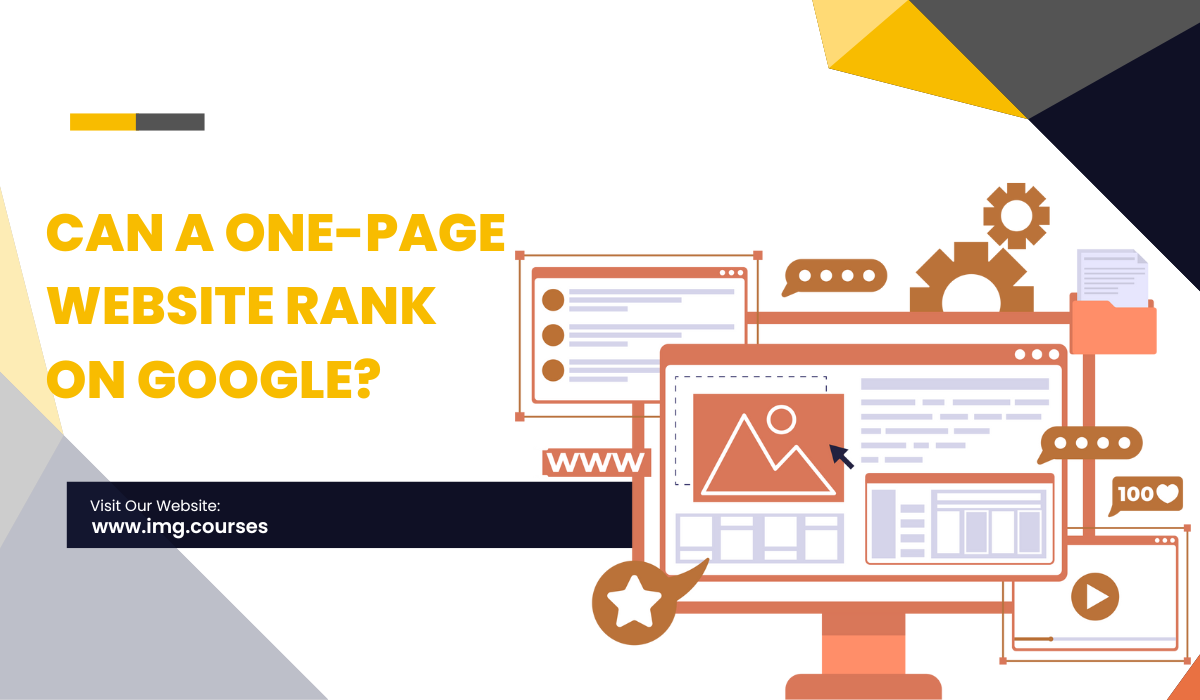
One-page websites have become increasingly popular in web design for their simplicity and focused messaging. However, a common question arises: Can a one-page website effectively rank on Google? While traditional multi-page websites have long been the standard for SEO, one-page sites can also achieve high search engine rankings if designed and optimized correctly. In this blog post, we’ll explore the factors that influence the SEO performance of one-page websites and offer practical tips to help you boost your rankings.
Understanding One-Page Websites
As the name suggests, one-page websites consist of a single web page that typically scrolls vertically. They are often used for personal portfolios, small businesses, landing pages, and events. Their simplicity can be advantageous, allowing for a clean, streamlined user experience and focused messaging. However, this simplicity also poses unique challenges for SEO.
The SEO Challenge of One-Page Websites
One of the primary challenges of one-page websites is their limited content. Unlike multi-page sites, which can target multiple keywords and topics across various pages, a one-page site must condense all its content into a single page. This can make it easier to cover a wide range of issues or optimize for multiple keywords without overwhelming the page or diluting its focus.
Another challenge is the need for internal linking opportunities. Internal links help search engines understand the structure of a website and distribute page authority. With more than one page, fewer opportunities exist to create these links, which can impact SEO.
Optimizing Your One-Page Website for SEO
Despite these challenges, a one-page website can still rank well on Google if you employ effective SEO strategies. Here are some key optimization techniques:
Focus on Quality Content
Quality content is crucial for any website, but it’s even more important for one-page sites. Your content should be well-written, relevant, and engaging. Ensure that valuable information that addresses the needs and interests of your target audience is included.
Optimize for Target Keywords
Select a primary keyword that accurately reflects the main focus of your website. Integrate this keyword naturally throughout your content, including in headings, subheadings, and meta tags. Be mindful of keyword stuffing, which can harm your SEO performance. Instead, aim for a natural flow that enhances readability and user experience.
Utilize On-Page SEO Elements
On-page SEO elements play a significant role in helping your one-page website rank on Google. Ensure that you optimize the following:
- Title Tag: Craft a compelling and descriptive title tag with your primary keyword. This tag appears in search engine results and can influence click-through rates.
- Meta Description: Write a concise and persuasive meta description that highlights the value of your content and includes your primary keyword. Although it doesn’t directly impact rankings, a well-written meta description can improve click-through rates.
- Headings: Use headings (H1, H2, H3) to structure your content and make it easy for users and search engines to navigate. Your main heading (H1) should include your primary keyword, while subheadings (H2, H3) can incorporate secondary keywords.
Enhance User Experience
User experience (UX) is a critical factor in SEO. A well-designed one-page website should be visually appealing, easy to navigate, and mobile-friendly. Ensure that your site loads quickly and that all interactive elements, such as forms and buttons, function properly.
Leverage Visual Content
Visual content, such as images and videos, can enhance user engagement and help convey your message more effectively. Optimize your visual content using descriptive file names and alt text with relevant keywords. This can also improve your chances of ranking in image and video search results.
Implement Technical SEO

Technical SEO ensures that search engines can crawl and index your site effectively. For a one-page website, focus on the following technical aspects:
- URL Structure: Use a clean, descriptive URL structure with relevant keywords. Avoid long and complex URLs that can be difficult for search engines to interpret.
- Sitemap: Even though it’s a one-page site, creating an XML sitemap can help search engines discover and index your content more efficiently.
- Robots.txt: Ensure your robots.txt file is correctly configured to allow search engines to crawl your page.
Building Backlinks
Backlinks are an important factor in SEO, as they signal to search engines that your content is valuable and authoritative. Although building backlinks can be more challenging with a one-page site, it’s still possible to earn quality links through:
- Content Promotion: Share your content on social media, forums, and industry-related websites to attract attention and potential backlinks.
- Guest Blogging: Write guest posts for reputable blogs in your industry and include a link to your one-page website.
- Influencer Outreach: Connect with influencers and industry leaders who may be willing to share your content or provide a backlink.
Monitoring and Adjusting Your SEO Strategy
SEO is an ongoing process that requires regular monitoring and adjustment. Use tools like Google Analytics and Google Search Console to track your website’s performance, including traffic, keyword rankings, and user behavior. Analyze this data to identify areas for improvement and adjust your SEO strategy accordingly.
Conclusion
While one-page websites present unique challenges for SEO, they can still achieve high rankings on Google with the right approach. You can improve your one-page site’s visibility and performance by focusing on quality content, optimizing for target keywords, enhancing user experience, and leveraging technical SEO. Building backlinks and continuously monitoring your SEO efforts will help ensure long-term success. With careful planning and execution, a one-page website can effectively rank on Google and attract valuable traffic.

